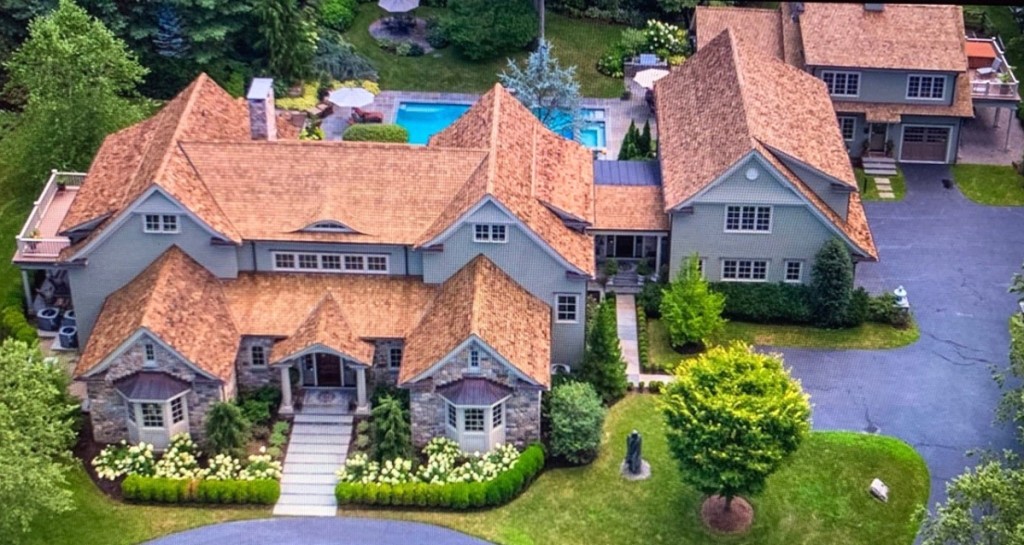Ronald P. Marshall, an interior designer living in Fairfield, Conn., has worked with no fewer than 12 different auction houses to sell his antiques, art, sculptures and other items over the past year as he put his home up for sale. The home at One Hubbell Lane has not sold yet, but Marshall decided to take auction houses out of the equation and conduct an estate sale at his home. A total of about 1,200 people showed up on his doorstep to purchase items. He now is willing to talk about his experience and lessons learned, believing that he can help people from a seller’s point of view to not make mistakes.
A little background: describe your home and what was in it.
I’ve been an interior designer for 40 years. I designed and custom built my home in 2007, working with an architect Dan Conlon, and my brother, who was my builder. My home was built in one year with a main house and guest house on two acres in Greenfield Hill. I have collected for nearly 40 years and still do collect when I find something I think is amazing. I bought through auction houses, estate sales, tag sales, Brimfield shows, etc. My collection of furniture, paintings, etchings, lighting, sculptures and many small accessories is very eclectic in style.
Why did you decide to sell?
I realized my collection was too large to move and use in my next home. I thought I should sell five items and upgrade to one. This is a “good problem” to have.
You decided to sell some items at auction. What were some of the variables to consider in getting estimates?
The auction house brings in various experts within their departments to review, photograph and list each item you are selling with their own estimates for today’s value. These estimates vary with each auction house and need to be compared. They will also negotiate their commission, photo fee, delivery costs with you depending on how much you are willing to give them. These prices should be put in writing from the beginning.
How many “estate sales” estimates did you consider?
I interviewed two companies. Since I had never done this before, I was not enthusiastic to have the public in my house, walking through all the rooms. I made a final decision to cut off certain areas of my home not open to anyone in which I kept pieces I did not wish to sell.
What were some of the questions you asked potential sellers?
I asked many questions to the estate seller’s staff to protect myself. For example: Who will set up my house with items and price them in coordination with me? How many people will be here the days of the sale to manage the floors and different wings of my home to prevent potential problems? Weather protection on rugs in case of rain – do you provide “booties” for people to wear on their feet? How do you invoice a purchase so I understand what something of mine has sold for? How much time do you need to set up and do you provide tables for small items? What if I change my mind and I do not want to sell something in the sale after it has been offered? Who does the take-down after the sale is over?
How was your sale advertised? And how many days did it run?
My sale was advertised in newspapers and various online sites, such as estatesales.net. There were also signs put up in the neighborhood during the sale, which ran Friday, Saturday and Sunday.
Did everything sell? If not, how did you deal with items that did not sell.
Although I did not like having so many little things all over my house on walls, doors, garage area and in the gardens in front, mostly everything got sold. The items I no longer wanted but were left unsold were donated to Goodwill and Habitat for Humanity.
Would you recommend your experience to others?
I think you really have to be prepared to take this on. It is the only fast way to get rid of extra stuff you have in three days – and you don’t have to move it if your house sells. It shows better not having so much for prospective buyers to look at so they can actually see the house instead of the clutter.
What were some of the lessons learned?
I was there for all three days to oversee everything even though I was told the owner should never be there. It is the best thing I ever did following my own instinct. Having family members there as well to supervise the public was a great idea. If I had to repeat this – and I might have to when my house does sell – I would pay more attention to going to some of the companies’ estate sales to actually see them in action before I hired them. There are some things I would change before the sale began. The most important thing in pricing is to remember what you are willing to sell something for after all the fees and commissions have been paid. I look forward to new collections of things, just fewer of them.
-W.A. Demers






